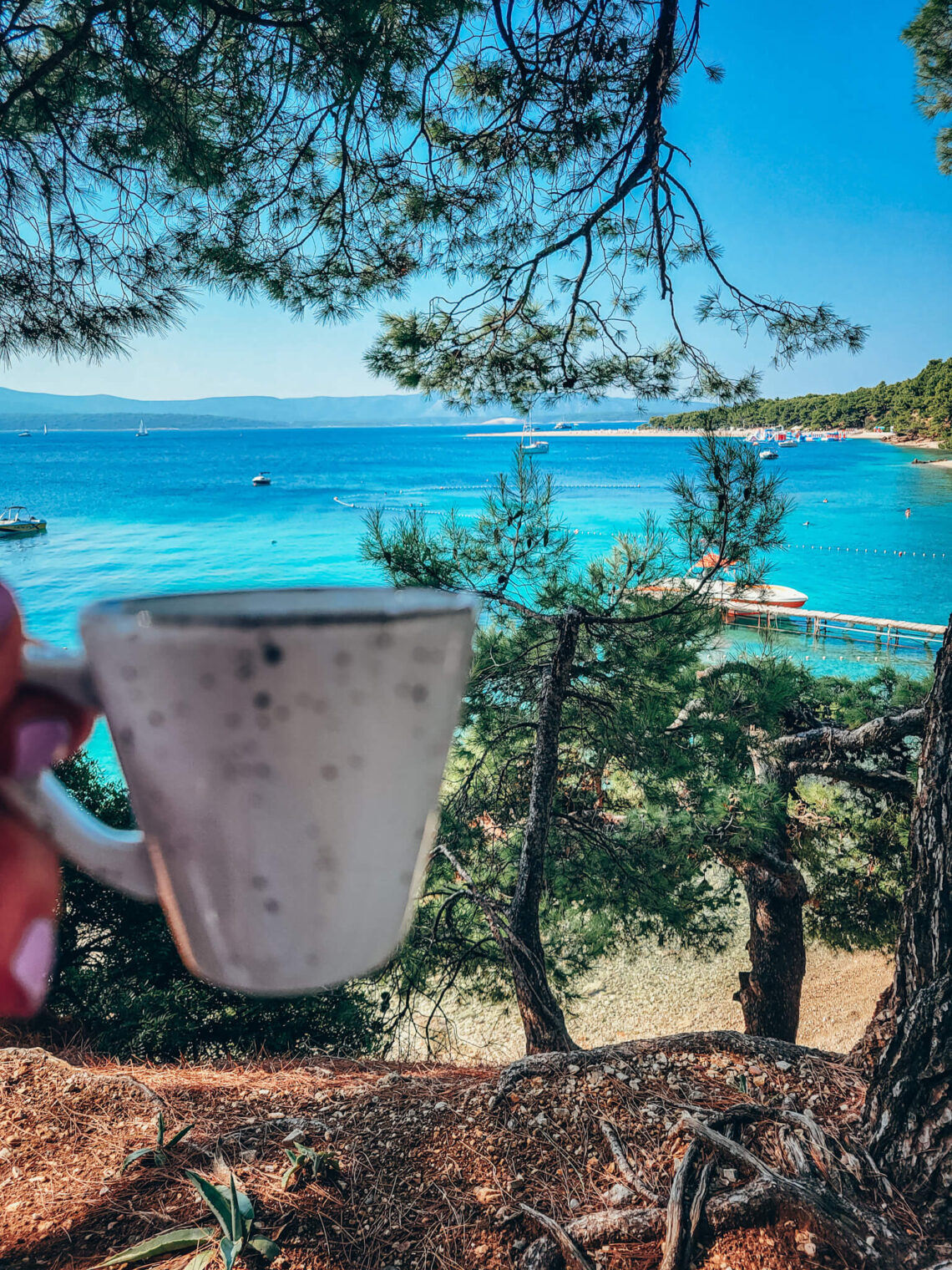
Reasons to visit Croatia: Why I love Croatia
Some posts on this website contain affiliate links. I receive a small commission if you use the links at no extra cost to you.
This post is totally from the bottom of my heart. I’m not looking at search engines, rules, and algorithms here at all. I just want to show you why I love Croatia with the hope you will find here reasons which will encourage you to visit and check Croatia yourself.
And while you will be there, you will know what to look for and notice and enjoy things on a different level than ‘just the beach’ or typical touristic attractions (which sometimes are great and sometimes are just typical tourist traps).
Croatia and Me
Why is it so important to me? I’ve been a Croatia lover for over 20 years now. By education, I’m a Croatian philologist (Master in Croatian and Serbian studies). I speak Croatian, and I had a chance to get to know the country deeper by studying its history, literature, geography and so on. I’ve been visiting Croatia for 20 years now (it’s not that far from Poland, where I live), and I can say I visited a lot of places there: these most-known and these less-known, not touristic at all.
I spent much more time in Croatia than just a holiday visit. During studies, I lived in Zagreb during my scholarship. Recently, I came back to Zagreb for almost a month for volunteering during the Men’s World Handball Championships. I was the only foreigner working as a volunteer, so it was a really great experience and immersion into the language and not only that.
I also used to go for volunteering work camps, where we helped renovate parks or museums in towns like Buzet or Čakovec.
Ok, enough about me, and let’s go into the beautiful country of Croatia and reasons to visit it.
Don’t worry, I’m not going to present you university knowledge. The reasons are very tourist-friendly!
Why to Visit Croatia
Atmosphere
In Croatia, time passes differently. Slower. It’s not to say that people don’t work and just chill, of course not, but still, they somehow rush less.
It’s a bit similar to other southern European countries like Spain, Greece or Italy.
It’s a bit because of the weather and a bit because of the mentality. In Croatia it’s especially visible in Dalmatia, but not only. If you visit Zagreb, you will notice it’s less rushed than other European capitals, too.
You know what word you can hear often when being in Dalmatia? Polako. Which means ‘slowly’. By the way, it’s a funny urban legend attached to it:
People in Poland are totally different, quite often in a rush and tension. Croatia is one of the most visited destinations by Poles. And when Polish people hear the word ‘polako’, for example, when parking, they think people laugh at them and refer to nationality (Poland in Polish is Polska). While it’s just generic advice to slow down.
Slow down is very much the Croatian way of doing things.
Coffee
The second reason is connected to the first. There is always time for coffee in Croatia. Seriously, even in Zagreb, in January, cafes were full on a sunny day.
Croatians drink around 5 kg of coffee per person per year (for comparison: in the UK it’s 2.8 kg). Although in this case it’s not about amount but mainly about the culture of drinking. You don’t see famous coffee chain places in Croatia. There is no single Starbucks! There were rumours about the opening of Starbucks in Zagreb, but the company confirmed that they don’t have such plans at the moment.
One of the reasons was market research which confirmed that Croatians would still choose coffee drinking calmly in a café over ‘coffee to go’. It’s true, you will just not notice crowds running on the streets with takeaway cups. It’s a long coffee meeting instead, with friends, for work, or alone. It’s rooted in culture and mentality, and, fortunately, it doesn’t change.
I love this approach and adjust to it quite quickly when in Croatia. Join it as well and enjoy your coffee spiced with sun and views without rush.
Croatian food and restaurants
Croatian food, restaurants and bakeries hit different. When I’m in Croatia, I eat. A lot.
In Croatia food is particularly important, and there are so many dishes you should try. There are national specialities (or even wider Balkan region specialities: ćevapi, pljeskavica) but also regional dishes.
It’s a lot of meat dishes; however, very likely you will be on the coast: then it’s a lot of fish and seafood, too. I very much like seafood pasta or risotto, like black (cuttlefish) risotto.
Vegetarians/vegans can struggle a bit, but for sure, you will be able to eat grilled vegetables and blitva – a mix of potatoes and Swiss chard, everywhere.
I also love the atmosphere of konoba. Konoba is a traditional restaurant, most often in rustic style, with traditional regional dishes and wine. You will find many restaurants of this type, especially on the coast.
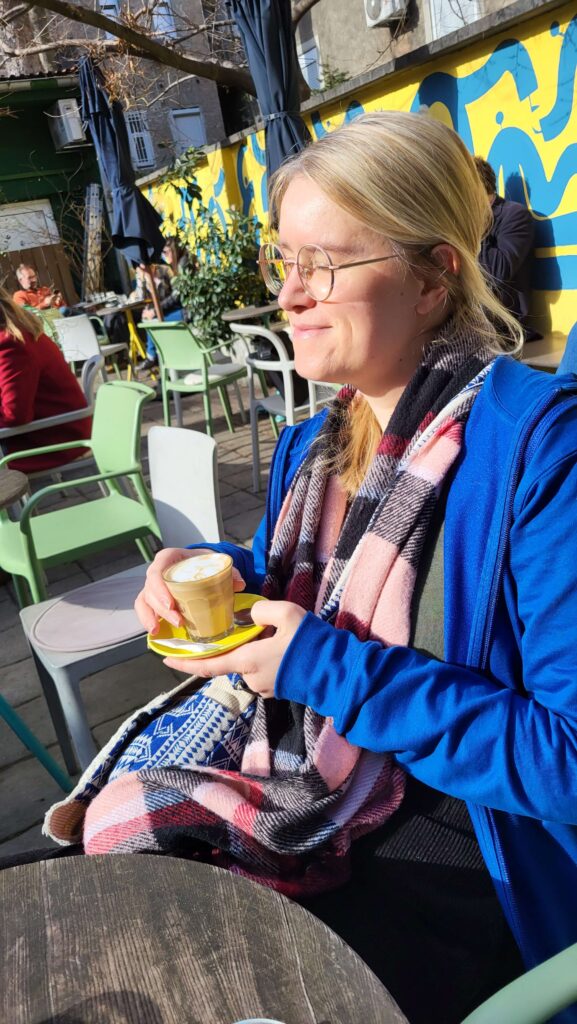
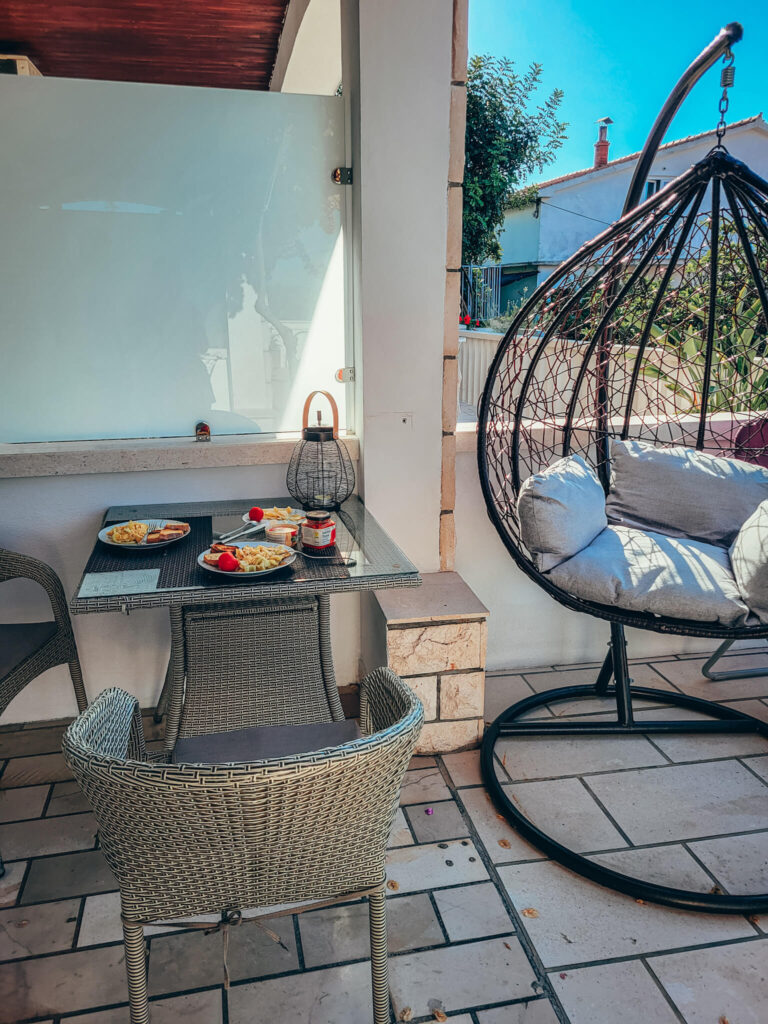
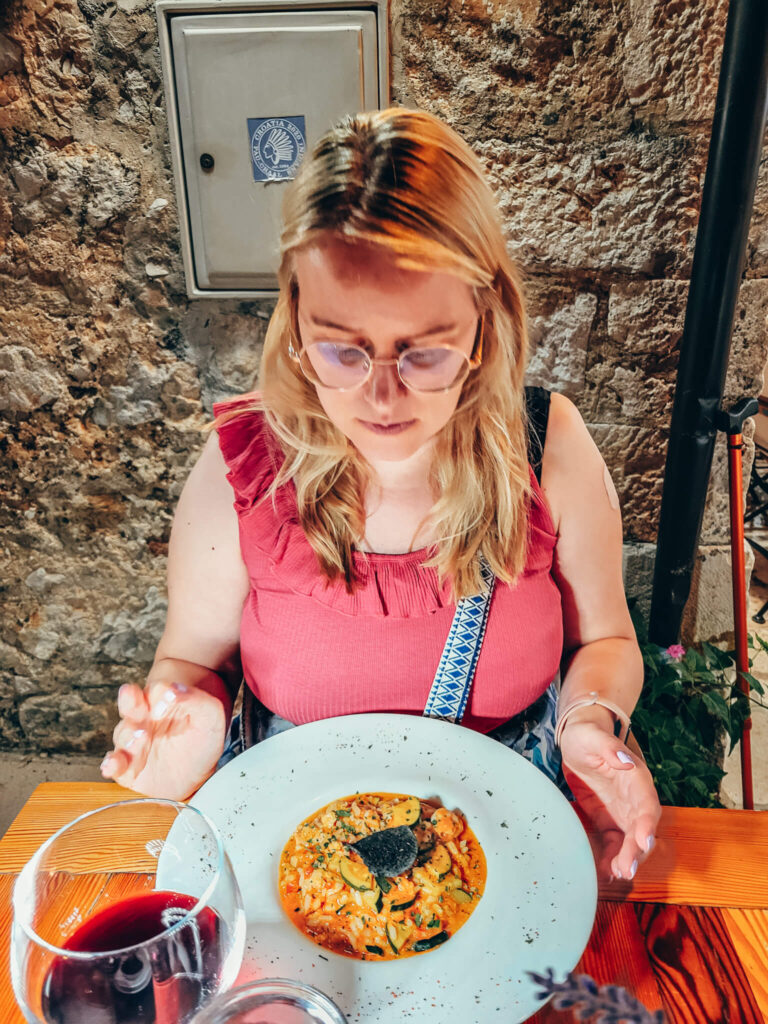
Bakeries
The special attention needs to go also to Croatian bakeries. You will find them without a problem; there are really many, and you can sniff one out from a 50-metre distance.
You can buy their bread or many other pastries. The most I recommend buying burek: with meat, cheese, or potatoes. It’s quite fat, but so good! And big enough to be your quick lunch.
Self-catering
Bakeries can also save you from bigger costs. Going to a restaurant in Croatia is a must, but with high frequency, it may be cost-absorbent. You can eat well and regionally also without restaurants; just look out for local markets for fresh vegetables and fruits, or even fish markets for fish.
At markets, directly from producers, you can also buy olive oil, wine, honey, olives, jams, cheese, and ajvar. You can even buy them in supermarkets, too.
Sometimes you can go directly to the producer’s home and buy it directly like this. It used to be more options like this, but you can still find them, especially in smaller towns. You will see boards (for example, on a fence) saying ‘wine/olive oil’; then you know you are in the correct place. You may expect to buy wine in an old coke or water bottle, but, well, it’s totally homemade and good.
That’s why when in Croatia I like renting an apartment rather than a hotel room. I just want to have a kitchen to be able to buy, store and cut all these goods.
Summing up, even if you don’t care about anything else from the list, food should be enough reason to choose it as your holiday destination.
Klapa and other music
When I miss Croatia, I prepare Croatian coffee (I always have some emergency package left in my cupboard) and switch on Croatian music. Especially the one that comes from Dalmatia. Check out, for example, the songs of Oliver Dragojević; you will hear his songs everywhere when in Croatia. Croatians love singing; they sing at every possible occasion. If you are lucky, you will see a wedding on the street: with a lot of singing, flags, and even smoke flares.
Klapa
The very special form of Croatian music is klapa. Klapa is a musical form, a choir (up to 12 people) singing a cappella about love, wine, motherland, and sea. Most often, it is a male klapa, although in recent years female klapa has also become more popular. It’s a strictly Dalmatian tradition, acknowledged on the UNESCO List of Intangible Cultural Heritage.
Go for a concert of klapa if you have any chance. They may, for example, sing in konoba.
Views in Croatia
One of the main reasons tourists visit Croatia is for the beautiful views. It’s one of these reasons that make me love Croatia too. The views depend on the region; they really differ. My favourite, though, is the one in Dalmatia: the Dalmatian type of shore, with a lot of islands, islets, bays and amazing colours of water. I also adore towns in Dalmatia, with narrow cobbled streets, cobbled houses and colourful bougainvillaea flowers.
I also adore views and the special atmosphere on islands.
Sea
The Adriatic Sea plays a very important role for Croatians. It’s not just some water reservoir. You don’t call it just ‘water’; you always say you go to the sea.
It’s part of mentality, culture and life. I like this approach very much.
Sailing
The Adriatic is a calm sea, and Croatia, with its particular type of coast and coastline of 6,278 km length, is an ideal place for the sails. It also has developed infrastructure, modern marinas, and a huge number of charter companies.
It’s easy to find companies that organise charters and cruises. I really recommend such holidays. For a week, you sail from island to island, every night staying on a different one. If it’s completely not your cup of tea, you can think about some touristic cruise of a few hours.
I was twice on such sailing holidays in Croatia. It was going out of a comfort zone, but honestly, it was great. It’s so worth it; Croatia from the sea is even more beautiful.
You can also do island-hopping with ferries.
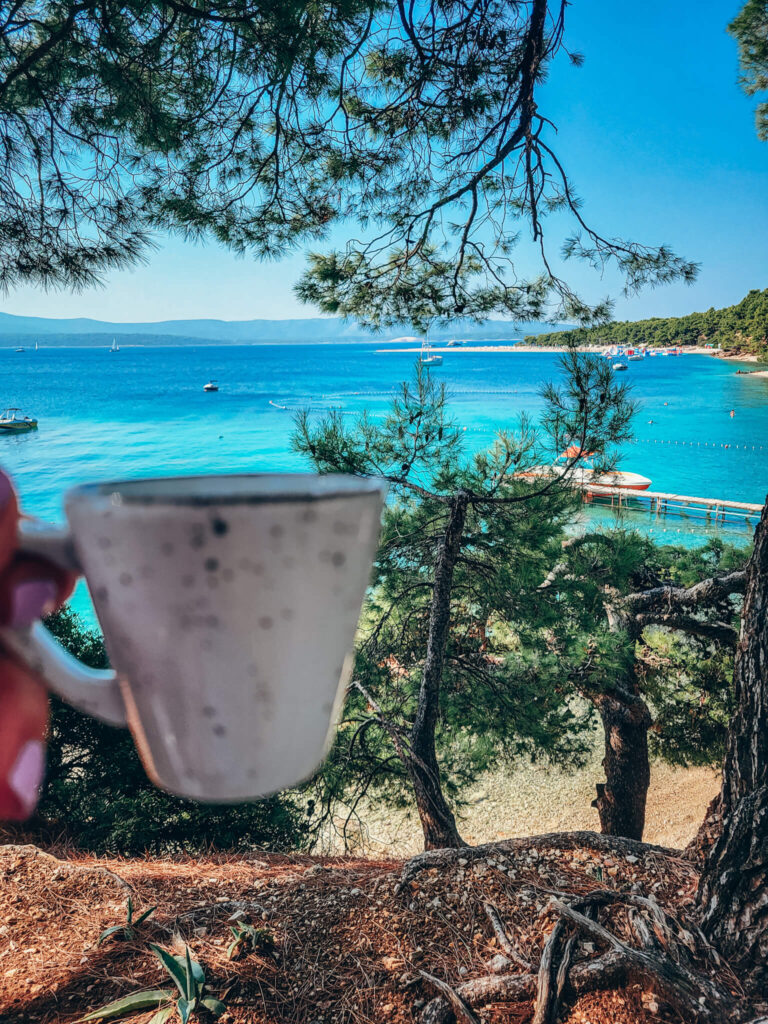
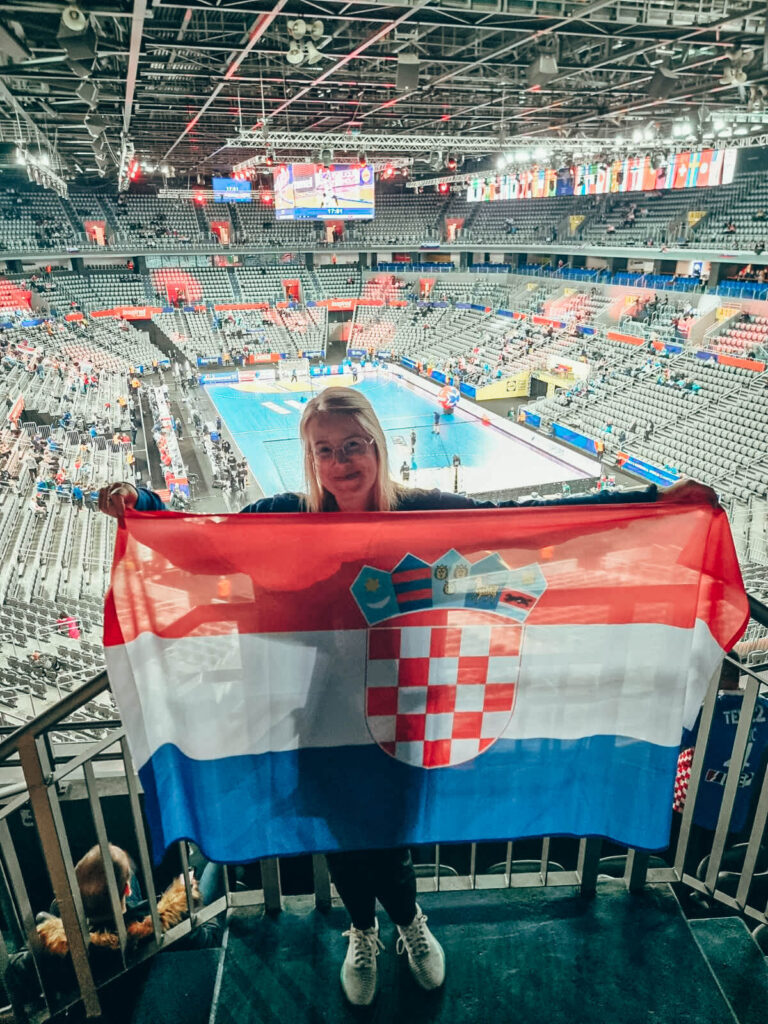

Language
I know it’s not something that most people visiting Croatia will care about, but for me, the other important reason to go there, it is the language.
I love the sound and tone of Croatian and differences (between regions) in the language. I wrote a separate blog post about the Croatian language, if you are more interested in the topic.
That’s not all, but for sure some of the most important reasons why I love Croatia (and why it’s a great idea to visit Croatia). Here, you can read more on where to go in Croatia.
Check out other Croatian blog posts to organise your trip to Croatia.




